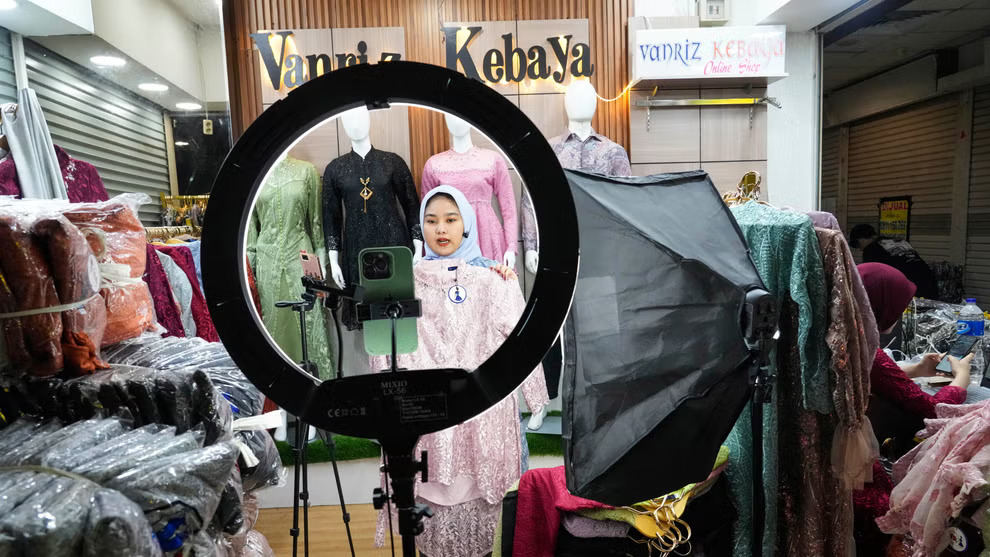In recent years, TikTok has emerged as a powerhouse in social media, captivating audiences with its bite-sized videos and viral content.
While initially known for dance challenges and comedic skits, TikTok’s influence has extended far beyond entertainment, significantly impacting the world of e-commerce.
With its innovative features, engaged user base, and emphasis on creativity, the app is shaking up traditional e-commerce practices and revolutionizing how brands engage with consumers.
As social media continues to redefine consumer behaviour and shape the retail landscape, platforms like TikTok have emerged as powerful drivers of change. With its vast reach and ability to spark trends overnight, it has become a force in the retail industry.
In this article, we unravel the profound benefits and impacts of TikTok on retailers, exploring how this dynamic platform is reshaping traditional shopping experiences and revolutionizing marketing strategies.

How TikTok Benefits Businesses
In addition, TikTok provides businesses with a powerful platform to showcase their brand, products, and experience to connect with customers and drive foot traffic and sales to their physical locations. By leveraging creative tools and engaging with the platform’s community, offline shops can effectively market themselves and thrive in an increasingly digital world.
It can benefit businesses in several ways, despite being a primarily digital platform. Here’s how:
- Increased Visibility
TikTok’s algorithm is designed to promote engaging and relevant content to users, regardless of whether individuals or businesses create it. By creating compelling content that showcases their products, services, or unique aspects of their offline shop, businesses can attract attention from it users.
Moreover, TikTok’s Explore page and hashtag challenges provide additional opportunities for businesses to gain exposure and reach new audiences.
- Brand Awareness:
It offers a creative platform for businesses to express their brand identity in fun and innovative ways. Through entertaining videos, businesses can showcase their personality, values, and what sets them apart from competitors. This helps build brand recognition and loyalty among its predominantly younger user base.

- User-Generated Content (UGC):
The app encourages customers to create and share content featuring the business or its product, which can amplify the brand’s reach and authenticity. When users share their experiences with a particular shop on TikTok, it acts as genuine word-of-mouth marketing, which is highly influential in driving consumer behaviour.
Businesses can incentivize UGC creation by running contests, offering discounts for content creation, or featuring user posts on their TikTok account.
- Promotions and Offers:
Apart from that, it can be an effective platform to promote special deals, discounts, or exclusive offers. Businesses can create engaging videos highlighting these promotions, leveraging TikTok’s features such as music, filters, and effects to grab users’ attention.
The time-sensitive nature of the content, combined with the platform’s viral potential, can create a sense of urgency and drive immediate action among viewers.
- Trend Participation:
Staying updated with the latest trends and challenges allows businesses to capitalize on popular topics and engage with their audience in a relevant way. By incorporating trending hashtags, music, or formats into their content, businesses can grow their visibility and connect with TikTok’s broader community. Trend participation also showcases the business’s willingness to adapt and engage with current cultural conversations, which can resonate positively with users.
- Behind-the-Scenes Content:
Providing behind-the-scenes into the inner workings of the business can humanize the brand and foster a deeper connection with customers. Whether showcasing the production process, introducing staff members, or sharing anecdotes about the business’s history, behind-the-scenes content adds a personal touch to the brand’s presence. This transparency helps to build trust and loyalty among customers.
- Feedback and Engagement:
TikTok’s interactive features, such as comments, likes, and direct messages, enable businesses to engage directly with their audience. By actively responding to comments, addressing customer inquiries, and soliciting feedback, businesses can foster a sense of community and demonstrate their commitment to customer satisfaction. This two-way communication also provides valuable insights into customer preferences, allowing businesses to adapt their offerings and improve the overall customer experience.
What Happened to TikTok Shop in Indonesia?
On October 4th, 2023, Indonesia bid farewell to TikTok Shop, a move prompted by a new regulation prohibiting e-commerce trade on social media platforms. With an estimated 125 million users, Indonesia is one of the largest markets for the ByteDance-owned app.
Despite TikTok Shop’s burgeoning popularity in the country, Indonesia became the first in Southeast Asia to oppose this feature.
TikTok introduced its shopping feature in Indonesia back in 2021, experiencing immediate success that prompted its expansion into online retailing in other markets, such as the US. However, it has been compelled to discontinue its e-commerce feature in Southeast Asia or face the possibility of losing its local operating license.
This decision will have repercussions for approximately two million small businesses operating on TikTok Shop.

Furthermore, TikTok has placed its strategic focus on Indonesia as a model for expanding into various online shopping markets, including the United States. By the end of 2022, TikTok Shop had emerged as the fifth-largest e-commerce platform in Indonesia, as reported by Momentum Works, a venture outfit based in Singapore.
Despite its growing operations, TikTok has yet to obtain an Indonesian payment license and instead depends on third-party payment service providers within the country. In a fact sheet, the company clarified, “TikTok currently lacks its own payment and logistics infrastructure in Indonesia. It accepts various payment methods, including debit/credit cards, digital wallets, bank transfers, and cash.”
Additionally, a license would enable TikTok to generate revenue from transaction fees and enhance its competitiveness among other payment service providers. However, Indonesian authorities are pushing for platforms like TikTok to separate their shopping features from social media functions.
This unprecedented regulation poses a significant obstacle to TikTok’s burgeoning e-commerce ambitions, particularly as it was beginning to make strides against competitors like Sea Ltd. and GoTo Group in the Indonesian market.
In summary, TikTok offers offline shops a dynamic platform to increase visibility, build brand awareness, foster customer engagement, and drive traffic to their physical locations through creative and authentic content creation.
By leveraging TikTok’s features effectively and staying attuned to their audience’s interests, businesses can tackle the power of this popular social media platform to achieve their marketing objectives.


